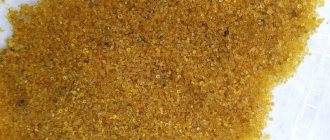Composition of the drink
The black liquid invigorates and tones, gives strength and energy. Few people know that coffee is also beneficial for the body, including the gastrointestinal tract. The aromatic drink is useful due to its components:
- Caffeine is an odorless and colorless alkaloid. You need to know when caffeine enters the body and what happens. A person receives a charge of vigor and tone, its mechanism of action on the body is aimed at combating fatigue and drowsiness.
- Protein is an essential substance for the entire body, and especially for the digestive system.
- Chlorogenic acids - have the ability to burn fat cells; these acids give the drink a bitter taste.
- Carbohydrates - these include sucrose, fiber, cellulose. The carbohydrate content of coffee is 50%. All these substances are necessary for the smooth functioning of the gastrointestinal tract.
Despite all the benefits of the drink, you need to be careful with it, even if your stomach is in good condition. Coffee should be consumed in moderation and preferably after meals.
Alternative options for a sore stomach
There are several plants, drinks from which can successfully replace coffee on the table of a patient with gastritis.
Chicory
This drink has gained popularity in recent years due to its beneficial properties and pleasant taste. However, in terms of its effect on the stomach, it is quite comparable to coffee, since it also enhances the production of hydrochloric acid.
Therefore, all the rules for safe coffee consumption also apply to chicory. Nevertheless, for hypo- and normoacid gastritis, its benefits are undeniable: chicory for gastritis reduces the inflammatory reaction, improves tissue regeneration, and increases the secretion of gastric juice.
Chicory has many more beneficial properties that affect almost all body systems: it contains a wide range of vitamins and minerals, works as an antioxidant and antiseptic, and reduces blood glucose and cholesterol levels.
Barley drink
An infusion of crushed barley is a safer coffee analogue for gastritis. It does not reduce the pH of the stomach, but it has anti-inflammatory and antibacterial effects, so you can drink it for all types of inflammation. In addition, barley has a tonic effect and accelerates recovery processes after illness, surgery or injury.
Rye analogue
Despite the positive effects of rye on the cardiovascular, respiratory system, skin condition, liver, thyroid gland, it is better to avoid drinks based on it in hyperacid and erosive gastritis due to stimulation of the production of digestive juices. And against the background of normal acidity levels, you can afford to take rye decoctions and infusions of 200 ml up to 3 times a day.
Oat drink
Oats for gastritis are one of the most useful foods, as they normalize the acidity of gastric juice and accelerate the healing of the gastric mucosa.
Many healthy drinks are prepared based on this cereal: decoctions, infusions, jelly. The latter are the most useful because they have an enveloping effect. True, they taste little like coffee.
Jerusalem artichoke
Recently, this plant has also become an increasingly common alternative to coffee beans. For gastritis, this is certainly a more preferable product, since it reduces the production of hydrochloric acid in the stomach and its damaging effect on the mucous membrane. Freshly squeezed Jerusalem artichoke juice is especially active in this regard. It should be taken half an hour before meals three times a day.
The benefits and harms of coffee
Is it possible to drink coffee with gastritis? It depends on the form of the disease and the severity of the clinical case. In the initial stages of the disease, moderate consumption of coffee will not cause harm; if the pathology occurs with complications and an intense clinical picture, you will have to forget about coffee.
The drink is healthy. It relieves symptoms of drowsiness and fatigue, gives vigor and energy, and helps saturate the body with nutrients beneficial to it. The grains contain the substance N-methylpyridine, which protects the mucous membranes from the destructive effects of hydrochloric acid.
But coffee also has a negative effect, especially if you drink it in excessive quantities. Before deciding whether coffee can be used for gastritis, you need to know about its negative qualities:
- The drink has a negative effect on the digestive system due to the presence of a large amount of acids in it.
- Use before or instead of meals when the stomach is empty is not recommended. It has an irritating effect on the mucous membranes of the digestive tract, which is why the unpleasant symptoms of the disease can increase with gastritis. A cup of coffee can lead to heartburn, abdominal pain, and activate the process of hydrochloric acid production. Without food, the acid begins to digest the mucous membranes of the organ.
- Coffee regularly drunk on an empty stomach increases the likelihood of developing peptic ulcers and the formation of cancer in the future.
It is necessary to understand whether it is possible to drink coffee with gastritis if the pathology is moderate. Coffee has a negative effect on the stomach if consumed incorrectly.
Effect of coffee on the stomach
Let's look at the physiological mechanisms of coffee's effect on the gastric mucosa.
- Like any liquid with a high temperature, coffee irritates the mucous membrane of the gastrointestinal tract. The phenomenon leads to increased secretion of hydrochloric acid and mucus in the stomach.
- In addition to the physical effects of temperature, coffee acts on the mucous membranes through chemical components. The catechol and caffeine contained in the drink enhance the production of hydrochloric acid.
- Physiologically, the mechanism of the stomach: during the night the organ is freed from food masses, then rests. If a person drinks a cup of coffee on an empty stomach in the morning, such a ritual has an irritating effect on the gastric mucosa and stimulates the production of hydrochloric acid.
- If a person has breakfast at the same time, hydrochloric acid is used to process the food bolus. If, besides coffee, no other food enters the stomach, hydrochloric acid has no choice: the substance digests its own stomach wall. It is extremely harmful to drink an invigorating drink on an empty stomach.
Coffee for various forms of the disease
If you have high acidity, it is better to avoid the drink altogether, or limit yourself to 1 cup of a weak natural drink. Otherwise, it can lead to an even greater increase in acidity and excessive irritation of the mucous membranes.
If you have high acidity, you can drink a cup of coffee strictly before 12 noon only if the disease is in remission, and be sure to dilute it with milk.
With low acidity, coffee can be consumed up to 3 times a day, 1 cup, no earlier than 1 hour after meals. The liquid should be at a neutral temperature - neither hot nor cold. During the exacerbation phase, regardless of the level of acidity, drinking coffee for gastritis is strictly prohibited.
How to replace coffee with gastritis
For gastritis, it is recommended to replace coffee with plant-based drinks that do not irritate the stomach walls:
- barley – indicated for diseases of the gallbladder and liver, strengthens the immune system, reduces stress;
- chicory – contains pectin, which envelops the walls of the stomach, which promotes cell regeneration;
- Ginseng decoction – promotes digestion, prevents diarrhea.
There is an opinion that some varieties of coffee beans are less harmful to the gastrointestinal tract, especially when subjected to high heat treatment. Researchers from the University of Vienna studied the mechanism of the drink's effect on the cells of the gastric mucosa. It was concluded that deep-roasted beans produce N-methylpyridine, which reduces acidity. The result of scientific work may be the appearance of coffee that will not harm people with chronic gastrointestinal diseases.
Attention! Self-medication may be dangerous, consult your doctor.
Normal stomach acidity is an important indicator of health. This is the key to the absence of problems with the gastrointestinal tract. High or low stomach acidity leads to various diseases, including oncology. Symptoms and treatment of imbalances are the domain of gastroenterologists.
Healthy and safe coffee substitutes
Despite the fact that you can drink an aromatic, invigorating drink for gastritis, but in moderation, you need to take into account that it can cause harm to the stomach. Therefore, doctors still recommend abandoning it. It is worth paying attention to useful substitutes.
Chicory is a plant-based powder. It has a positive effect on the digestive system, gently enveloping the mucous membranes of the stomach, protecting them from the negative effects of hydrochloric acid, and promoting the restoration of the organ at the structural level. Chicory will be especially useful for gastritis with low acidity, because it stimulates the process of production of gastric juice, saturates the body with vitamins, macro- and microelements that are beneficial for it.
Recipes for making a healthy drink:
- In a cup. Chicory is poured with boiling water, honey, milk or cinnamon is added to it.
- Chicory decoction. ½ tbsp. ingredients, pour 1 liter of water, put on fire and cook for 30 minutes. Leave to steep until cool. Take 1 tbsp. with food.
Chicory has a number of contraindications, which include some forms of gastritis and features of the symptomatic picture of the disease.
Another tasty coffee substitute is cocoa. It is recommended to drink it for gastritis with high acidity. Cocoa powder contains saccharides and starch, which promote the secretion of gastric juice. The beneficial properties of cocoa for the digestive system and body are explained by its components:
- Endorphin - this hormonal substance is called the hormone of happiness; it improves mood and evens out the psycho-emotional background. Good moral well-being and a positive attitude speed up the healing process.
- Dietary supplements in cocoa beans have an effect similar to that of taking aspirin. These substances stop the process of platelet aggregation, improving blood quality.
- Cocokhil is a special substance that activates the process of cell division and growth, accelerating the healing of damaged mucous membranes.
It is recommended to drink no more than 2 cups of cocoa per day; the drink is prepared according to one of 2 recipes:
- Powder in the amount of 2 tsp. stir in 1 glass of milk with a fat content of no more than 1.5%. Bring to a boil, turn off. Add sugar to taste.
- Preparation of cocoa for gastritis with low acidity: pour 1 liter of water 2 tsp. powder, add cinnamon and sugar to improve the taste. Bring to a boil over low heat, strain after cooling.
Cocoa with low acidity is recommended to be taken for up to 12 days, warm, but not hot.
Barley coffee is another drink substitute. It will appeal to connoisseurs of an invigorating liquid; it tastes similar to cappuccino. The drink has a general strengthening effect and increases the body's resistance to stress. Barley coffee is especially beneficial for the stomach, as it provides a favorable environment for the development of beneficial microflora.
The barley drink does not have any negative properties. To maximize the benefits, it is better to cook it with milk. For gastritis, it is recommended to prepare a gentle barley drink according to the following recipe:
- Grind 4 tsp. barley grains.
- Mix milk (200 ml) and water in an amount of 100 ml in one container, add the prepared powder.
- Bring to a boil, then simmer for a few minutes.
To improve the taste of the drink, you can add sugar and ice cream.
Decaffeinated coffee - a panacea or a danger?
Some patients believe that for gastritis and duodenal or stomach ulcers, you can drink decaffeinated coffee. If you think that by replacing your usual drink with a caffeine-free product, you will avoid increased production of hydrochloric acid, then you are mistaken. Scientists have proven that caffeine is not the culprit of pain and sour taste in the mouth.
The cause of the misfortune lies in the oils and organic compounds that are also contained in packaging marked “caffeine-free.” By the way, speaking of the absence of caffeine, this is a myth. Western scientists have proven that a serving of a decaffeinated drink contains the same amount of alkaloid extracted from natural grains as two cups of regular coffee.
How to drink coffee correctly
If it is not possible to refuse an invigorating liquid, you need to drink it correctly so as not to provoke a worsening of gastritis. Rules and recommendations:
- You should not drink on an empty stomach. The recommended time to drink liquid is 30-60 minutes after eating. If you drink on an empty stomach, you can provoke disturbances in the digestion process and increase the intensity of unpleasant and painful signs of gastric pathology.
- The hyperacid form of the disease is a contraindication for consumption; in the hypoacid form it is possible, but in moderation and always with dilution of the drink with milk.
- Temperature. Coffee should not be hot or cold. Low or high temperatures negatively affect the digestion process and have an irritating effect on the inflamed mucous membrane of the organ.
- You need to choose a natural drink. The soluble product contains many preservatives and flavorings, which are prohibited for gastritis.
- The allowed amount is no more than 3 cups per day.
- Gastritis with high acidity - no more than 1 cup, always with milk, with low acidity - up to 3 cups, only a weak drink.
The decision to include coffee in the daily menu for various forms of gastritis can only be made by a doctor. The possibility of drinking the drink depends on many factors, the forms of the disease - congenital or acquired. A cup of aromatic liquid, drunk once, cannot cause serious damage to the body. But if you drink coffee in large quantities during an exacerbation of the disease, gastritis will develop more rapidly, accompanied by intense symptoms, and will lead to deterioration and complications.
Recommendations for use for gastritis of the stomach
- People with gastritis with high acidity and good lactose tolerance are allowed to drink coffee with added milk. The fact is that dairy products are rich in vitamin E, which reduces the production of hydrochloric acid. In addition, milk makes the drink “softer”.
- If gastric secretion is reduced, you can drink a weak, freshly brewed drink undiluted. Drinking coffee with milk for gastritis with low acidity is undesirable.
- Please note that adding sugar is not the best option for gastrointestinal diseases. It can be replaced with stevia. And if you also want to lose weight, add a pinch of cinnamon. Never use synthetic sweeteners.
- Are you used to starting every morning with a cup of coffee? This is contraindicated for gastrointestinal diseases. It’s better to drink a glass of kefir on an empty stomach, have a hearty breakfast, and after 1-2 hours treat yourself to a portion of pleasure.
- Limit your coffee intake to two cups per day (preferably not daily). This recommendation should be followed by both people with gastritis and those who do not suffer from this disease.
- Few people know that the greatest danger to the stomach is the product in soluble form. In addition to the chemicals in the composition, the product is generously enriched with tannins, which cause heartburn, pain and nausea.
- Refuse today's fashionable varieties of drinks with additives (cream, marshmallows, halva, syrups). Prefer the classic option.
- For gastritis, 2 servings of the drink per day are allowed until 6 pm. After 18.00, pepsin and hydrochloric acid stop being produced, so the liquid you drink will remain in the stomach until the morning, which can cause spasmodic pain.
- After preparing a portion of coffee, wait until it cools down. It is prohibited to consume it hot. Some experts from Europe even advise drinking the drink at room temperature, while Americans advocate preparing the infusion cold. The product not only has a brighter taste, but is also safe for gastrointestinal problems. After all, the cold infusion is characterized by low acidity. Another good news for people with insomnia is that the caffeine content in the modernized version is 75% lower.
There is an opinion that drinking an invigorating drink is the root cause of gastritis. It is a myth. Of course, excessive consumption of coffee for gastrointestinal diseases can increase pain and provoke exacerbation, but 1-2 servings per day, subject to generally accepted nutritional rules, will not cause the development of gastritis and ulcers.
Properties of the drink
Coffee beans, like any other plant, accumulate a large number of different chemical elements . One of them is caffeine, which attracts many fans from all over the globe. This substance is synthesized by the plant for a specific purpose, to protect itself from insects that eat the fruits of the tree. And in its essence it is nothing more than a poison capable of destroying living beings.
However, despite this, we get real pleasure from drinking a cup of coffee in the morning or throughout the day. Caffeine helps us to be alert and have a clear mind, gives us a boost of energy and good mood.
This is how coffee is roasted.
But natural coffee is not really like that. The fruits collected from the tree are subjected to very harsh heat treatment, causing many different reactions and destroying everything that was natural there. The result is a drink that is pure “chemistry”.
About 1 thousand substances are described in the composition of coffee. And almost none of this is found in the raw materials. Everything appears during the roasting process. Therefore, we can conclude that coffee is not a natural, thermally modified product.
- The overwhelming number of substances, about eight hundred, are responsible for the smell. It is this complex and rich composition of volatile substances that forms the unique aroma of coffee.
- About 150 chemical compounds are responsible for taste.
- The rest includes so-called toxins, including caffeine and others.
From all this it is clear that it is quite difficult to call coffee a useful product. Almost nothing of the original composition of substances given by nature to this plant remains at the end of the technological process.
Differences in acidity
When it comes to coffee acidity, several factors can play a role.
Roasting
One of the main aspects that determines the acidity of coffee is how it is roasted. Both roasting duration and temperature were correlated with acidity.
One study found that the longer and at higher temperatures coffee beans are roasted, the lower the levels of chlorogenic acid.
This suggests that less roasted coffee beans tend to have higher acidity, while more roasted coffee beans tend to have lower acidity.
Brewing
Another factor that affects acidity is the brewing method.
One study found that cold brew coffee has significantly lower acidity than hot coffee.
Brewing time also affects overall acidity, with a shorter duration resulting in a more sour brew and a moderate duration resulting in a less sour brew.
Grinding degree
The degree to which the coffee beans are ground can also affect the acidity. The finer the coffee is ground, the more acid will be extracted during the brewing process.
Therefore, using highly ground coffee beans may result in more acidic coffee.
Conclusion:
Several factors contribute to the acidity of coffee. The main ones are the roasting duration, brewing method and grinding degree.
Coffee for ulcers or gastritis: how coffee affects the stomach
Julia Vern 20 942
Connoisseurs of the aromatic drink with problems in the gastrointestinal tract will be grateful for reliable information about whether it is possible to drink coffee with a stomach ulcer and gastritis and what consequences will result from the reluctance to deny oneself the usual pleasure.
Considering that gastritis means constant adherence to a diet and a certain diet, the issue with coffee remains open. As a drink that affects the gastric mucosa, it must be subjected to rigorous analysis to predict the effects associated with its consumption in people with stomach diseases.
Gastrointestinal tract and caffeine - what happens in the body
This is about:
- caffeine;
- N-alkol-5-hydroxytryptamide;
- catechols.
Daily consumption of coffee for gastritis of the stomach will lead to side effects, ranging from heartburn to exacerbation of the disease.
The principle of the drink is simple: during the night the stomach processes food and enters the pause stage, gaining strength for the next “working” day.
By allowing coffee to affect him during this period - in the morning on an empty stomach, a person deliberately provokes the production of excess hydrochloric acid. The situation will be aggravated by a long break between coffee and the first meal.
The resulting acid will begin to digest the mucous membranes of the stomach.
Consistent consumption of coffee in the morning before breakfast will sooner or later lead to problems in the gastrointestinal tract, aggravate the situation of patients with ulcers or gastritis, and may even cause the development of cancer of the gastrointestinal tract.
Instant coffee is considered the most dangerous for stomach ulcers and gastritis. The harm of the drink was confirmed by studies related to its effect on the gastrointestinal tract. The mixture that underlies the drink contains numerous tannins that cause heartburn, nausea and heaviness in the stomach.
Caffeine in the morning - what does it mean for people with ulcers and gastritis?
Drinking coffee in the morning on an empty stomach will reduce the production of gastric juice. In turn, this will cause difficulties in the process of breaking down food. The protective layer of the organ walls, under the influence of caffeine and a number of substances contained in the drink, will gradually be depleted, which will cause an exacerbation of diagnosed diseases.
How to drink coffee correctly for people with stomach problems?
And yet, despite all the risks and warnings, in certain cases it is permissible to drink coffee with a sick stomach if you follow a number of simple rules:
- Be careful with the consumption of the drink for hyperacid and hypoacid gastritis, diluting the drink with milk or water.
- Avoid coffee before breakfast and immediately after meals, allowing the body to work correctly.
- Drink the drink only warm.
- Replace instant coffee with natural coffee brewed in a Turkish coffee pot.
- Dose the drink, not allowing yourself more than two cups.
Doctors recommend giving up coffee during treatment of acute ulcers and gastritis, replacing it with alternative safe drinks.
You may be interested in Compatibility of coffee and alcohol: all the pros and cons
Alternative to coffee - safe chicory
There are enough coffee substitutes that can satisfy the taste buds and provide no less aesthetic pleasure. One of the most popular is chicory. The unique plant is ground into powder, from which an aromatic and tasty drink is prepared.
It is based on pectin, which is responsible for:
- well-coordinated bowel function;
- normalization of the process of getting rid of waste and toxins;
- restoration of the structure of the gastric mucosa.
All this means one thing - in case of ulcers and gastritis, its regular consumption will not only not worsen the situation, but will also improve the situation.
Additionally, it is worth noting that due to the high content of tannins and the resistance of essential oils to microbes, chicory improves the condition of the liver, kidneys, gall bladder, and accelerates the process of restoration of flora in case of intestinal infections and poisoning.
For ulcers and gastritis, the drink must be taken in special forms. An effective solution is chicory steamed with boiling water in a cup. You need to drink the tincture warm, with the addition of sugar, honey, milk and cinnamon to taste. No more than three cups are allowed per day.
A tincture from the plant will be useful for those who have a stomach ache. To do this, 50 grams of powder are steamed in a thermos and allowed to brew in a warm place. Take 60 grams of tincture before meals.
A decoction of chicory is also suitable as an option. It is prepared simply: pour half a glass of powder into a liter of boiling water, cook for 30 minutes, then let it cool and take a tablespoon during meals.
Cocoa - a coffee substitute for those suffering from ulcers and gastritis
It is not easy to deny yourself coffee completely, even with serious stomach problems. It’s much easier to do this if you have a tasty and, most importantly, safe analogue in mind. Cocoa can claim its place - rich and aromatic.
The drink has a bright chocolate taste, invigorates and charges you with a good mood. It includes:
- starch;
- polysaccharides;
- organic acids;
- tannins.
Patients with gastritis and stomach ulcers can drink cocoa in the same way as chicory in limited quantities, at the right time with the addition of milk. You need to choose only natural cocoa that needs brewing, and not its instant analogues with a high content of flavors and dyes.











